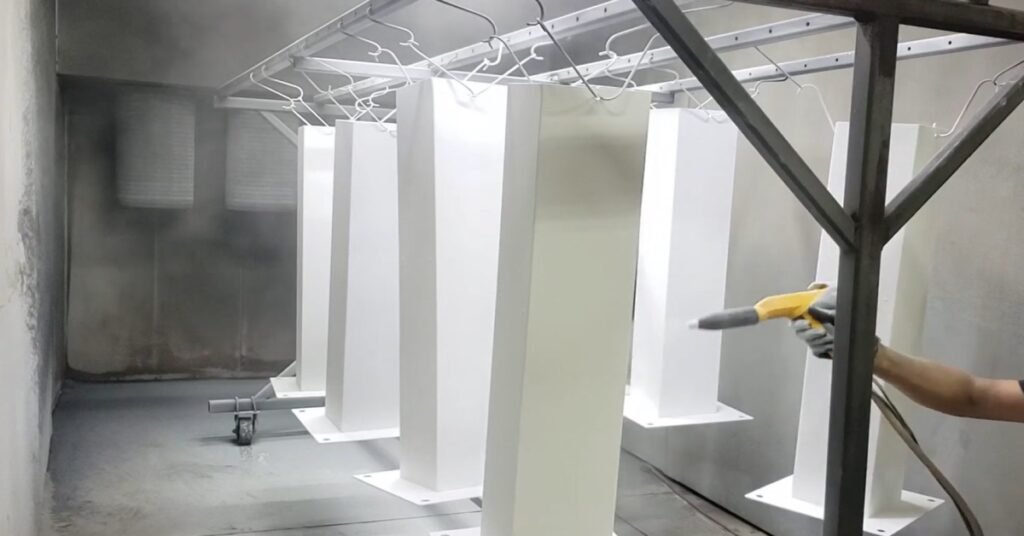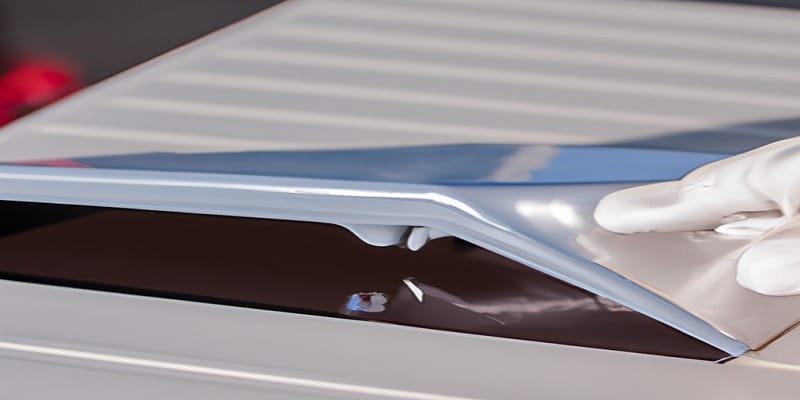Choose the correct primer for powder coating applications by considering the substrate material and desired finish, and ensure compatibility between the primer and the powder coating material being used. When selecting a primer for powder coating, it is essential to understand the specific requirements of the application and the type of substrate being coated.
By considering these factors, you can ensure proper adhesion and durability of the powder coating system. We will explore the key considerations in choosing the correct primer for powder coating applications, including substrate compatibility, desired finish, and other important factors to achieve a successful coating.

Choosing And Applying Primers For Powder Coating
When it comes to achieving a durable and flawless finish in powder coating applications, choosing the correct primer is crucial. Primers play a vital role in promoting adhesion, providing corrosion resistance, and enhancing the overall appearance of the finished coating. However, finding the right primer for your specific project can be a hard task. Here, we will explore the key factors to consider when selecting and applying primers for powder coating applications.
Proper Storage And Handling Of Primers
Before we delve into the specifics of primer selection, it is essential to understand the importance of proper storage and handling. Primers are typically sensitive to environmental factors such as temperature, moisture, and exposure to direct sunlight. Therefore, it is crucial to store primers in a controlled environment to prevent degradation or contamination.
When storing primers, it is recommended to:
- Keep them in a cool and dry area, away from direct sunlight.
- Store them in a well-ventilated space to avoid the buildup of fumes.
- Ensure the lids are tightly sealed to prevent moisture absorption.
Additionally, primers should be handled with care to minimize the risk of spills or accidents. Always follow the manufacturer’s instructions for proper handling and use personal protective equipment (PPE) when necessary.
Understanding Safety Precautions During Primer Application
The application of primers for powder coating should always be carried out with safety in mind. Here are some key safety precautions to consider:
- Work in a well-ventilated area or use exhaust fans to prevent the accumulation of fumes.
- Wear appropriate PPE, including gloves, goggles, and a respirator, to protect yourself from inhalation and skin contact.
- Avoid smoking or open flames in the vicinity of the application area, as primers can be highly flammable.
- Dispose of empty primer containers according to local regulations and guidelines.
By following these safety precautions, you can ensure a safe working environment and minimize the risk of accidents or health hazards during the primer application process.
Best Types Of Primer For Powder Coating
When it comes to selecting the best type of primer for powder coating applications, it is essential to consider the specific requirements of your project. Here are some popular types of primers used in powder coating:
| Primer Type | Properties |
|---|---|
| Epoxy Primers | Excellent adhesion and corrosion resistance. Ideal for metal substrates. |
| Zinc Primers | Provides exceptional corrosion protection. Recommended for outdoor or marine applications. |
| Polyester Primers | Offers good flexibility and impact resistance. Suitable for applications requiring durability. |
Each type of primer has its own set of advantages and suitability for specific substrates or environmental conditions. Consulting with a powder coating professional or referring to the manufacturer’s product data sheets can help determine the best primer for your specific requirements.
Troubleshooting Common Primer-related Issues
While primers are designed to enhance the powder coating process, sometimes issues may arise. Here are some common primer-related problems and their possible solutions:
- Blistering: This may occur due to moisture trapped in the substrate. Proper surface preparation and dehumidification can help prevent blistering.
- Peeling or adhesion failure: Inadequate surface cleaning or poor primer application techniques can result in poor adhesion. Ensure thorough surface cleaning and follow proper application guidelines.
- Cracking or flaking: Insufficient primer thickness or excessive drying/curing temperatures can cause cracking or flaking. Follow the recommended primer thickness and curing parameters.
By troubleshooting these common primer-related issues, you can overcome challenges and achieve a successful powder coating application.
Types Of Primers For Powder Coating Applications
In powder coating applications, choosing the correct primer is crucial for achieving a durable and high-quality finish. Primers not only enhance the adhesion of the coating to the substrate but also provide additional corrosion protection. There are several common primer varieties available, each with its own set of characteristics and applications. In this article, we will explore four types of primers commonly used in powder coating applications: Epoxy-based primers, Polyester-based primers, Urethane-based primers, and Zinc-rich primers.
Epoxy-based Primers: Characteristics And Applications
Epoxy primers are known for their excellent adhesion and chemical resistance properties. They are widely used in industrial applications that require high durability and corrosion protection. Epoxy primers provide good resistance against moisture, chemicals, and solvents, making them suitable for harsh environments.
Advantages
- Superior adhesion to various substrates
- Excellent corrosion resistance
- Good resistance to moisture, chemicals, and solvents
Disadvantages
- Poor UV resistance
- Brittle film properties
Ideal Uses for Epoxy Primers
- Automotive parts and accessories
- Metal fabrication
- Aerospace components
Polyester-based Primers: Characteristics And Applications
Polyester primers are known for their excellent flexibility and UV resistance, making them ideal for outdoor applications. These primers offer good adhesion and corrosion protection while providing a smooth and aesthetic appearance. Polyester primers are commonly used in the automotive and architectural sectors due to their high weatherability.
Advantages
- Good adhesion to various substrates
- Excellent flexibility
- High UV resistance
Disadvantages
- Relatively low chemical resistance
- Less effective at protecting against corrosion compared to epoxy primers
Ideal Uses for Polyester Primers:
- Outdoor furniture and fixtures
- Architectural metalwork
- Automotive body panels
Urethane-based Primers: Characteristics And Applications
Urethane primers offer a combination of excellent adhesion, flexibility, and chemical resistance. They are often used as a universal primer that can be applied to various substrates, including metals, plastics, and composites. Urethane primers provide a smooth and glossy finish, making them popular in automotive and marine applications.
Advantages
- Good adhesion to various substrates
- Excellent flexibility and impact resistance
- Chemical resistance
Disadvantages
- Costlier compared to epoxy and polyester primers
- Not recommended for high-temperature environments
Ideal Uses for Urethane Primers
- Automotive refinishing
- Marine applications
- Industrial machinery
Zinc-rich Primers: Characteristics And Applications
Zinc-rich primers provide exceptional corrosion protection by acting as a sacrificial layer. They contain high levels of zinc particles, which create a physical barrier against moisture and chemicals while preventing the spread of rust. These primers are commonly used in heavy industries and offshore structures where corrosion resistance is paramount.
Advantages
- Excellent corrosion resistance
- Acts as a barrier against moisture and chemicals
- Self-healing properties
Disadvantages
- Requires proper surface preparation for optimal performance
- Relatively high cost compared to other primers
Ideal Uses for Zinc-Rich Primers
- Marine and offshore structures
- Steel bridges
- Industrial equipment exposed to harsh environments
FAQs About Primer For Powder Coating Applications
What Primer Should I Use On Powder Coating?
Choose a primer specifically designed for powder coating. It should have excellent adhesion and durability to ensure the best results. Look for a primer that is compatible with the type of powder coating and surface you are working with. Follow the manufacturer’s recommendations for application and drying times to achieve optimal adhesion and finish.
Should You Use Primer Before Powder Coating?
Yes, it is recommended to use a primer before powder coating. A primer helps to improve adhesion and provides a protective layer for the powder coating, ensuring a longer-lasting and more durable finish.
What Primer To Use On Powder Coated Aluminium?
To ensure proper adhesion, use a high-quality acrylic primer specifically designed for powder coated aluminium surfaces.
Read Also: Can you powder coat over primer?
Can You Powder Coat Over Etch Primer?
Yes, you can powder coat over etch primer. The etch primer provides a suitable surface for the powder coating to adhere to, ensuring a durable and long-lasting finish. Powder coating over etch primer helps improve adhesion and corrosion resistance for a superior final result.
Final Thoughts
To ensure a successful powder coating application, choosing the correct primer is crucial. By understanding the different types of primers available and considering factors such as substrate material, environment, and desired finish, you can make an informed decision. Remember, selecting the right primer promotes better adhesion, corrosion resistance, and overall coating durability.
So, take your time, evaluate your options, and make a choice that aligns with your specific coating requirements. With the correct primer, you can achieve a flawless and long-lasting powder coating finish.


